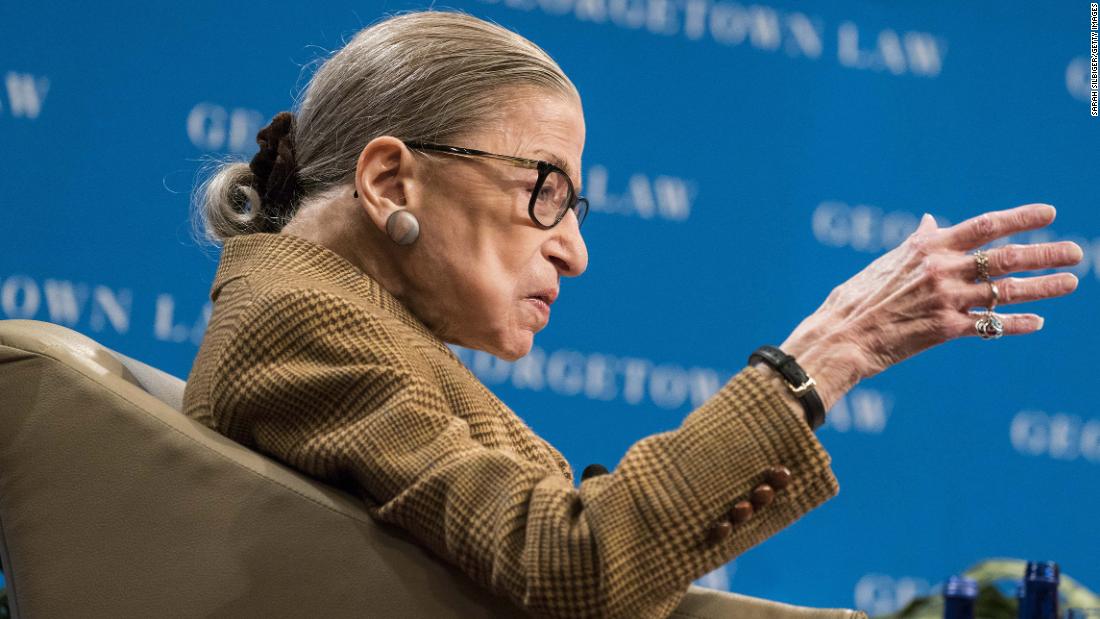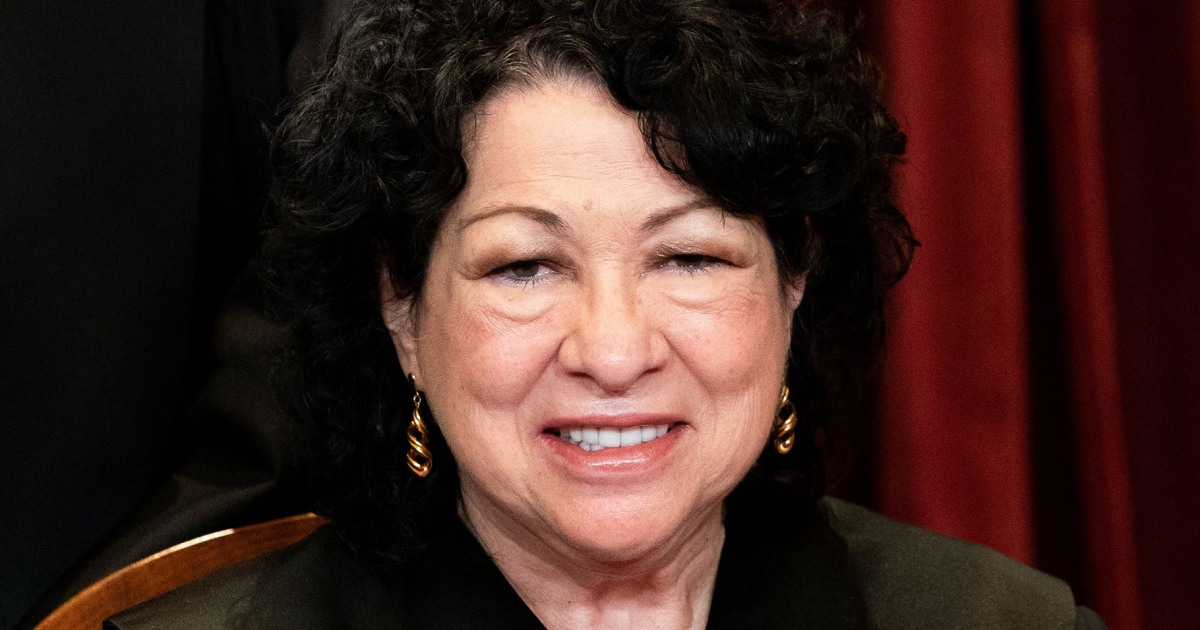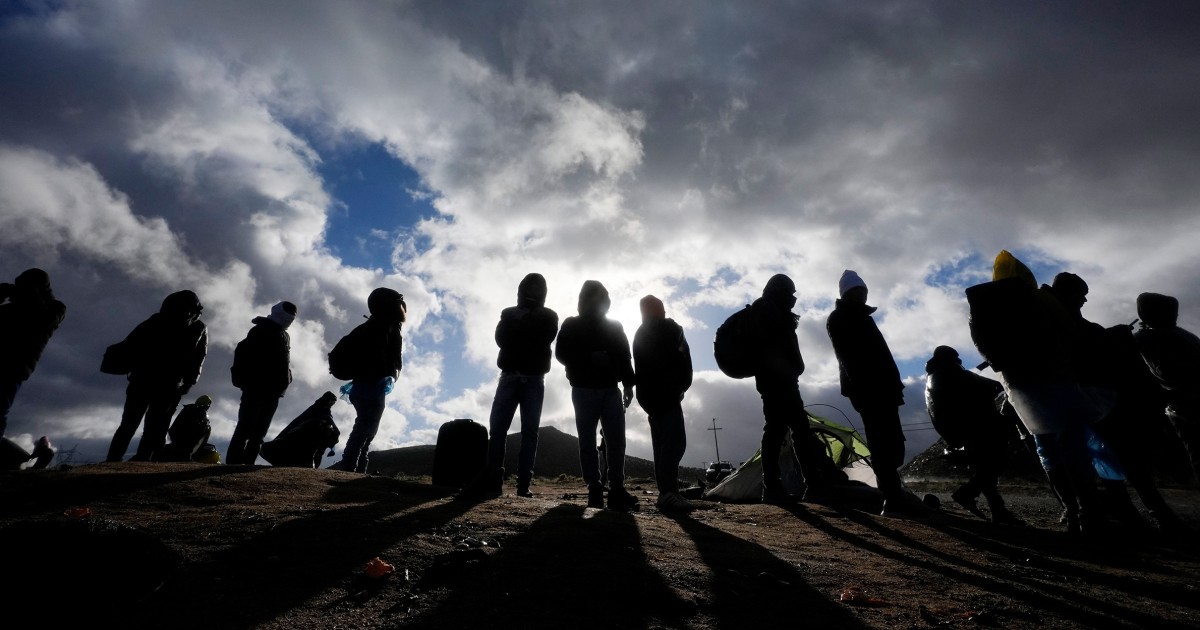Ruth Bader Ginsburg's Most Memorable Speeches 2:44
Editor's Note:
Vanessa Cárdenas is a Democratic strategist with more than 10 years of experience in the media and immigration, women's empowerment and climate change issues.
She is president of CárdenasStrategies, LLC.
The opinions expressed here are solely those of the author.
See more opinion pieces at cnne.com/opinion
(CNN Spanish) -
A few months ago, I read a biography of Supreme Court Justice Ruth Bader Ginsburg (RBG).
An anecdote in the book made me smile: it told the story of Anita Ramos Mosteiro de Escudero, typist of the book “Discrimination on the basis of gender”.
She was initially shocked to read RGB's views on gender discrimination.
Years later, when Anita was at a party in her home country, she was introduced by her husband with the typical phrase: "this is my wife."
She threw her shoulders back and proclaimed loudly for all to hear: “I'm nobody's!
I am a person!".
The book had transformed her.
This is a small example of the impact Judge Ruth Bader Ginsberg's well-reasoned arguments have had and illustrates the kind of work she did to help women realize they deserved the same rights as men, at one point in which they were still treated as second-class people.
The notable discrepancies of Judge Amy Coney Barrett
This is how they gave a last goodbye to Ruth Bader Ginsburg at the Capitol 6:08
The work of Ruth Bader Gingsburg
Justice Ginsburg was not perfect.
But it's no exaggeration to say that no other judge has done so much when it comes to gender equality.
If you are a woman, you have a lot to thank Judge Ginsburg for.
Her landmark work in Reed v.
Reed urged the Supreme Court to apply the Equal Protection Clause to end gender discrimination.
Her fervent dissent on pay discrimination in 2007 led to the enactment of the Lilly Ledbetter Fair Pay Act of 2009, which protects women from pay discrimination.
Her work on financial access ensured that women could obtain credit cards and loans in their name.
She also broke down barriers for women in education when she wrote the landmark ruling that state-funded schools must admit women.
She lobbied for pregnancy discrimination to be recognized as a form of gender discrimination;
and it even helped make it easier for women to serve on juries.
These landmark decisions, while focused on women in general, had particular benefits for women of color, who face so many obstacles when it comes to equitable and fair access.
And in recent years, RBG was a staunch advocate on progressive issues that helped people of color, including Latinos.
She stood firm in supporting the Affordable Care Act (ACA), voted to provide equal rights to LGBTQ + people, was a strong advocate for the environment, and championed immigrant communities.
Earlier this year, she joined the 5-to-4 decision by rejecting Trump's decision to end the DACA program, which gives young undocumented immigrants the opportunity to live without fear of deportation;
she also wrote minority dissent in the case of a Mexican teenager who was shot and killed by a US Border Patrol agent.
She argued that the young man's family had the right to claim monetary damages from the agent and pointed to a history of complaints against Border Patrol agents.
In 2019, she joined a majority ruling that overturned the Trump administration's efforts to add a citizenship question to the 2020 Census. She frequently and consistently voted for the recognition of the rights of immigrants and refugees.
Trump booed as he pays tribute to Ginsburg 2:16
Other laws that Gingsburg defended
And while he also lost, he also fought to protect our voting rights.
In Shelby County v.
Holder, the majority of the Court revoked the protections of the Voting Rights Act of 1965 and allowed the southern states to change their voting procedures without federal supervision.
In dissent, Ginsburg wrote: "Removing prior authorization when it has worked and continues to work to stop discriminatory changes is like throwing your umbrella in a storm because you are not getting wet."
In 2014, when the Supreme Court sided with a law in Texas that required voters to submit specific forms of identification, Justice Ginsburg argued that that law was an unconstitutional burden on the right to vote and that it was intended to “ deliberately discriminatory ”.
These are some of the reasons that Republicans and the Trump administration are so eager to replace it with a more conservative option.
They know that they now have a chance to confirm a conservative judge who will have a huge impact on issues central to our democracy for decades to come: everything from immigration, health, to reproductive rights, the environment, and yes, even elections.
All of these decisions are extremely relevant to the Latino community and are not in the distant future;
On November 10, the Supreme Court plans to hear a lawsuit that challenges the constitutionality of the Affordable Care Act (ACA).
If Republicans can confirm another conservative jurist, their efforts to advance that agenda will know no bounds.
If Latinos needed another reason to go to the polls this November, surely this is it.
We must protect Judge Ginsburg's legacy by ensuring that the Senate does not move forward in confirming a new judge.
And then we must stand by to elect a president who appoints a magistrate who knows how to protect our civil rights and who fights so that we are all treated equally before the law.
Ruth Bader Ginsburg





/cloudfront-eu-central-1.images.arcpublishing.com/prisa/E6HHFF3LSBFABJJIUGGB5RHZBI.jpg)



